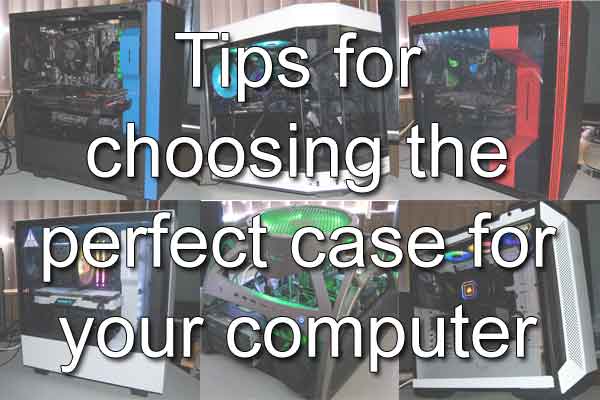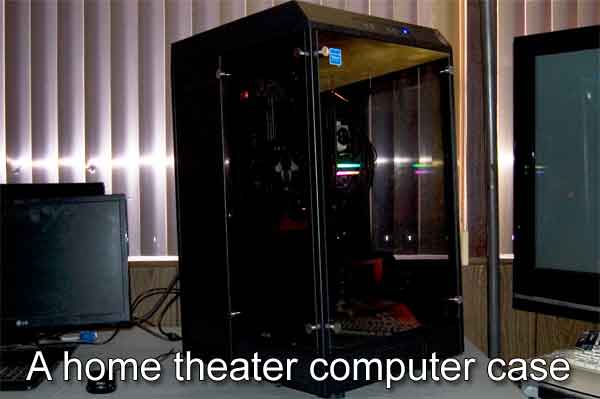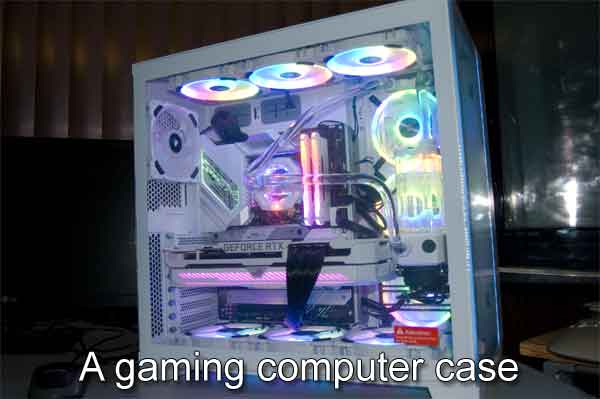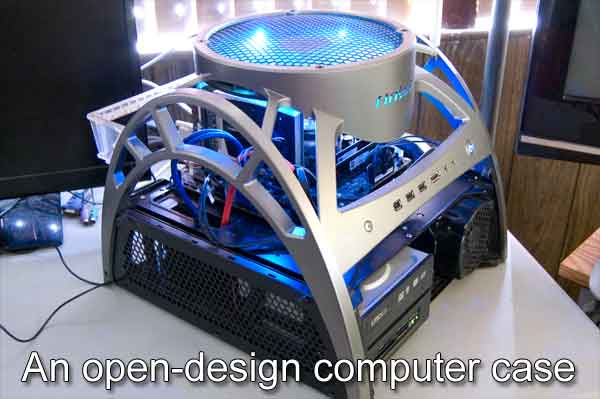Are you building a new computer or upgrading an existing one? The computer case is one of the most essential components you'll need to consider. In this article, we'll go over some tips to help you in choosing the perfect case for your computer.

When it comes to finding the perfect computer case, you have to remember that not only does it protect your components, but it also affects your computer's cooling and noise levels. With so many options on the market, choosing the right computer case can be overwhelming.
Size matters: The first thing you will need to consider is the motherboard that you are going to use. The most common sizes are ATX, Micro-ATX, and Mini-ITX. Make sure you choose a case that fits your motherboard size.

Beyond that, you'll also need to consider the size of your graphics card(s), power supply, CPU cooler (air or liquid), and drives you plan to install.
Airflow and cooling: Proper airflow is crucial for keeping your components cool and extending their lifespan. Look for a case that has plenty of ventilation and supports multiple fans. You may also want to consider a case with liquid cooling support if you plan on overclocking your CPU (Central Processing Unit) and/or GPU (Graphics Processing Unit). Remember, a larger case will give you more room for expansion, but it will also take up more space on or below your desk.

If you plan on using a liquid cooler for your CPU and/or GPU, you will need to take into consideration the size of the radiator(s) and cooling fans. The mounting depth for a cooling radiator with fans attached can vary, so definitely make sure you have plenty of clearance in the case where you plan on mounting the cooling system. Remember that a case with more fans will generally be louder than one with fewer fans, so you'll need to find a balance between cooling and noise levels.
Noise levels: Speaking of noise levels, consider the noise output of your case. If you're building a home theater PC or a workstation that needs to be quiet, look for a case with sound-dampening materials and low noise output. On the other hand, if you're building a gaming PC that will be under your desk, noise may not be as much of a concern.
Cable management: A clean and organized interior not only looks better but also helps with airflow and cooling. It also comes in handy when it comes to maintenance. Look for a case with plenty of cable management options, such as routing holes and tie-down points. Some cases even have built-in cable channels to help keep everything tidy.
Build quality: Next, consider the build quality of the case. You want a sturdy, well-made case with no sharp edges or flimsy panels. A good case will also have easy-to-remove panels to access your components easily.
Some 'no name' generic cases have a tendency to have metal edges that are not deburred, leaving them extremely sharp, which will lead to cuts on your hands as you assemble your computer. Since a good quality case can last for years, spending a little more on a quality case is just good sense.
Serviceability: With living in a dry environment like Phoenix, we have an extreme amount of dust and need to clean our systems on a regular basis. Having a computer case that can be easily cleaned of dust is essential.

Remember that most computer cases also come with dust filters that need to be cleaned, so having side and top panels that can be easily removed is handy.
In addition to these tips, you'll also want to consider the overall style and design of the case. Do you want a sleek and minimalist look or something with more RGB lighting and flashy designs? Ultimately, the right case for you will depend on your personal preferences and needs.
For more information on building your own computer, check out the following articles.
How to build a computer
How to find compatible computer parts online
Things to keep in mind when building a custom-built computer
Common problems to avoid when building your own computer
0bfe2fd6-4b90-4543-9efd-392543e47456|0|.0|96d5b379-7e1d-4dac-a6ba-1e50db561b04